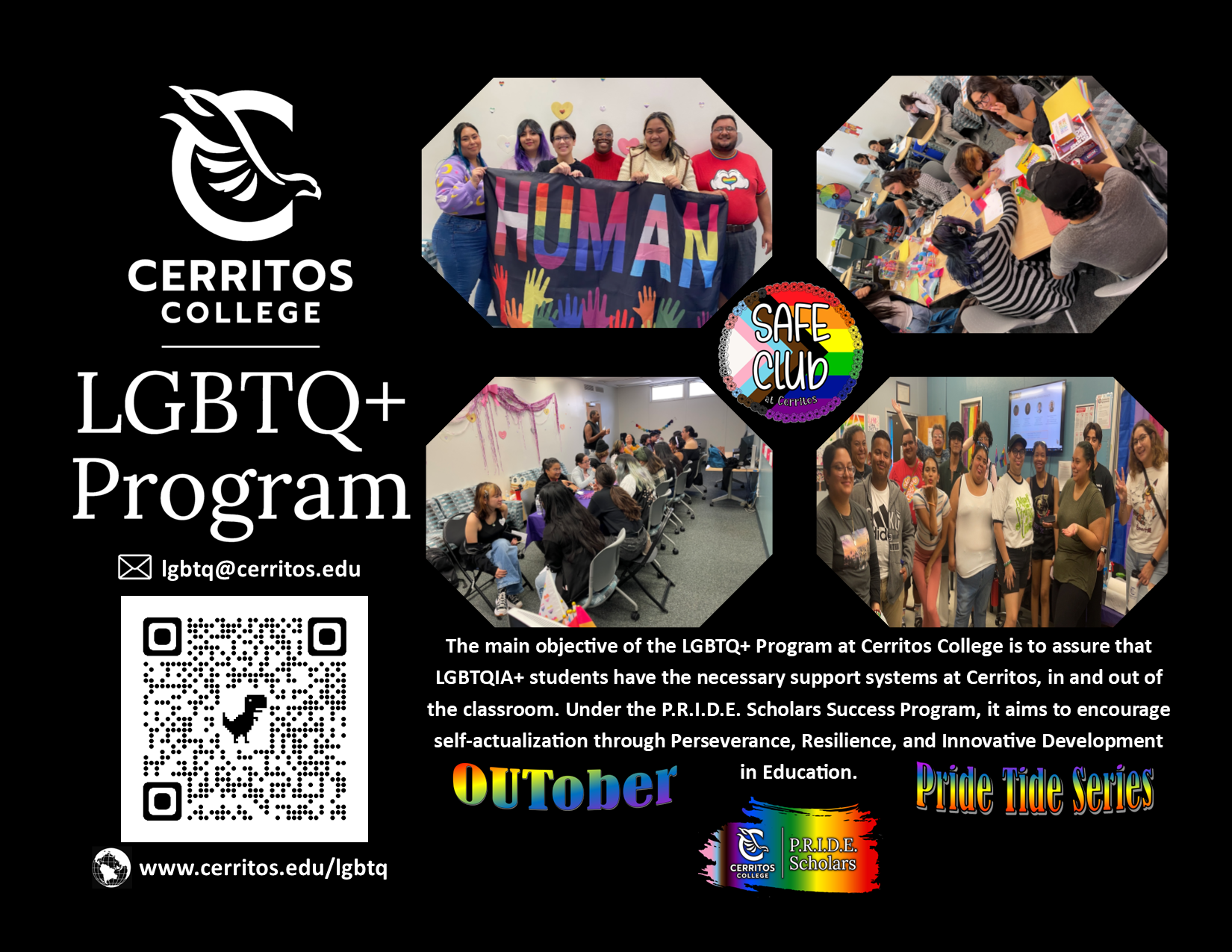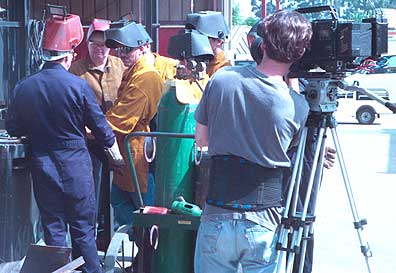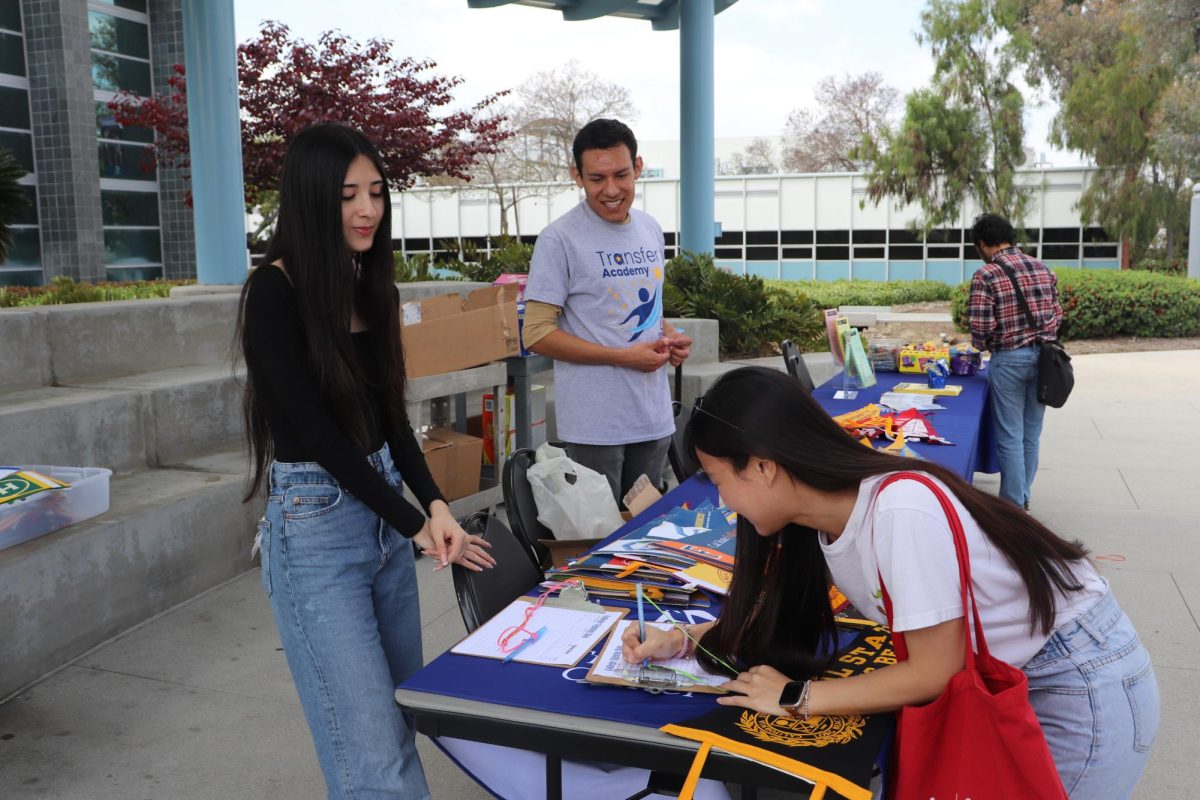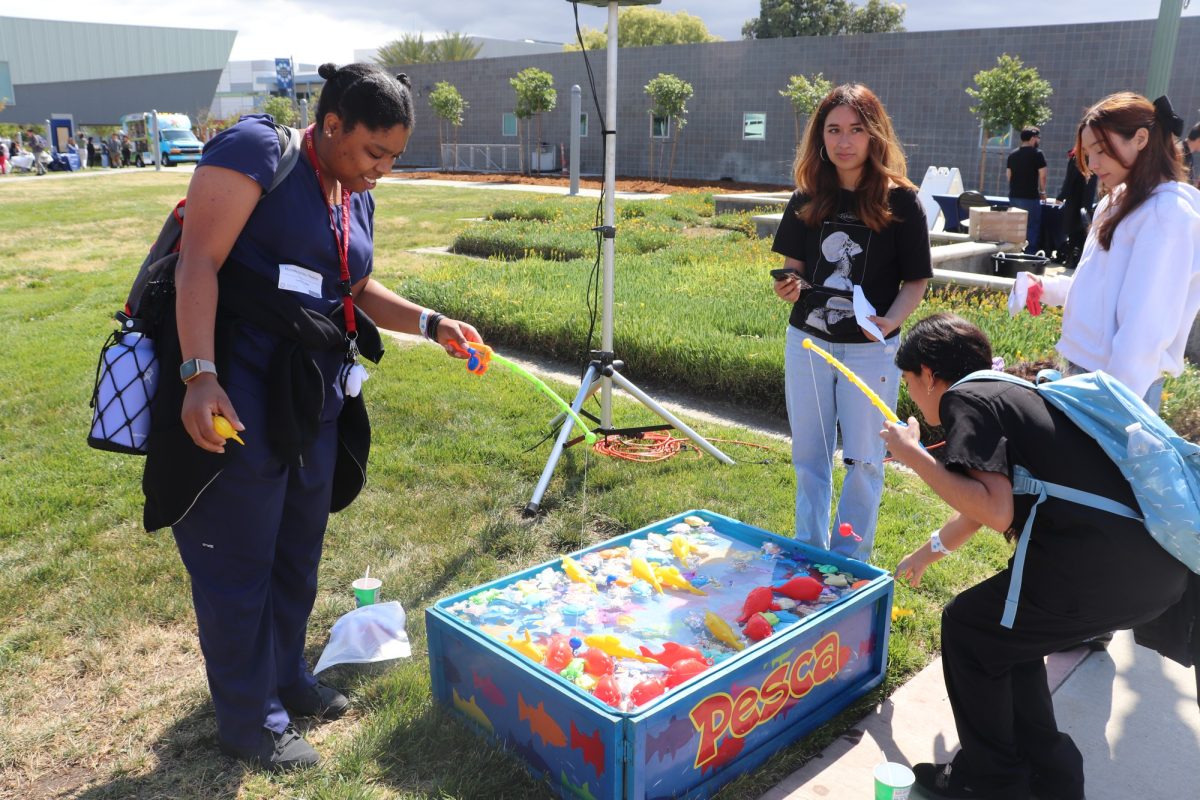The program talked about the declining number of vocational education programs in our country. Cerritos was noted for being one of the few vocational education programs remaining that prepares students for successful careers in the automotive and welding industries.
According to the program, there is a great demand for skilled workers in certain trade technology fields such as welding, and auto technology. The demand is high but the workers are few.
One of the reasons for this is that not many people are going in to the field, particularly high school graduates. High school students are not told about the advantages of working in such fields as welding and auto technology.
The trend is that counselors, teachers, and parents do not encourage students to go into such fields. Rather, the current trend in high schools is to push all students to go to four-year universities, such as University of California and get academic degrees.
But like Philip Bruce of KCET’s Life and Times said, “Higher education may not mean higher pay.”
According to Jim Quaas-Berryman, a student in welding, he could be making $30,000 to $50,000 per year upon graduation. “If you add inspection, you could easily make $100,000.”
There are some people who are taking advantage of the programs available to them, such as the people currently enrolled in Cerritos College’s auto technology corporate sponsorship program, which trains students to become specialized technicians for GM, Chrysler, and Ford dealerships.
The average starting salary for a technician graduating from the program is:
- $9-13 when you start the program
- When you’re done make at least $20 = 41,000 per year
- When you’re in 2 1/2 years $30-$40 per hour = $61,000 per year
After two and a half years in the field, the salary for the average technician is about $61,000 per year, according to Kevin Taylor, the DaimlerChrysler instructor.
With salaries like this, one might wonder why high school students aren’t jumping at the chance to get into the program.
There are several reasons for the lack of students entering into these programs, according to Frank Vega, community education specialist and outreach manager of the automotive program at Cerritos College.
One of the problems is that students aren’t being exposed to automotives or other trades in high school. “Most high schools have no auto shops,” Vega said. Because these students have no exposure, they do not have the chance to see whether auto technology is for them.
According to the KCET program, schools that once had vocational training programs are cutting back on them. Focus has gone to producing high standardized test scores and college-ready students instead.
Another obstacle is the stigma still attached to so-called “blue collar” jobs. Parents may have a hard time encouraging their kids to go into a auto technology that lacks the prestige accorded by other professions, such as being a doctor or a lawyer, or more recently, computer programmers.
But as Vega points out, auto technology has become and is becoming an increasingly technologically advanced job. He points to a poster on a classroom wall that has a photograph of a car with its hood raised, displaying the tightly packed, complex machinery that runs the car. Above the photo is a heading “It’s not brain surgery, but it’s close.”
“Everyone thinks it’s a dirty job, but it isn’t. It’s a job that requires a lot of critical thinking. Nobody can open up a hood and know what’s going on in there without training. There are anywhere from five to eight computers in cars lately. We have to use laptops to diagnose cars now,” Vega explained.
Cerritos College — aside from San Diego which has a Chrysler program, and Riverside, which has a GM and Toyota training program — is one of very few community colleges in California that offers that kind of extensive auto mechanical training.
Its two-year corporate sponsorship program, also called Chrysler Apprenticeship Program (CAP), is rigorous. It requires students to follow a strict pre-set schedule that gives them both a solid A.A. degree education and a certificate.
If students follow the basic schedule, taking basic math and basic English as well as the other general education reqirements, they graduate with an A.A.
However, if students want to keep open the possibility of transferring to a four-year university, such as a Cal State or a UC, they can make their credits transferrable by taking higher level math and English classes.
Cerritos College’s automotive department is not only a trade school, but an official training center for GM, Ford, and Chrysler. That means that apart from the high school students and others who want to get a start in the automotive technology business, current employees of the three companies take courses to update their skills.
All students who graduate from the corporate sponsorship program graduate with both an AA and a certificate. Of the 14 graduated classes 79 percent are currently working for GM, Ford, or Chrysler dealerships. 40 percent of those graduates are with the original dealership they started with.
Others go on to four year universities with the AA degree they have earned. Some come back to the program as teachers.
But like all jobs, how far one advances as an auto technology specialist and how much money one can earn depends on the individual’s determination, discipline and drive to succeed.
“It’s not easy to be a technician. If you can learn your job and do it right and do it efficiently, you can make a lot of money. The success depends on you,” Vega said.
If you’re willing to put in the work, however, the rewards can be great — but not just in terms of money. “There’s satisfaction when you fix a car, it is a very rewarding. Every car is a new challenge and every challenge is met head-on. The best feeling of working on a car is that if you treat your customer and their car with the same respect you would expect from somebody else you will see that customer again and again because you would have earned their trust. That’s a great feeling.,” Vega added.
For more information about the Cerritos College automotive technology program, you can contact Claudia Flores at (562) 860-2451, extension 2934. Or you can e-mail her at [email protected].
Story continues below advertisement











